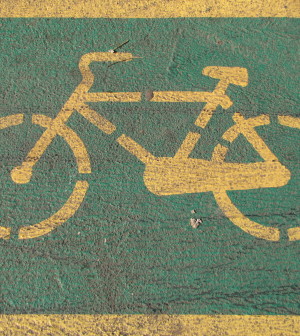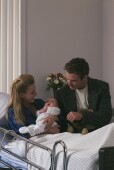- Could Your Grocery Store Meat Be Causing Recurring UTIs?
- Are You Making This Expensive Thermostat Error This Winter?
- Recognizing the Signs of Hypothyroidism
- 10 Strategies to Overcome Insomnia
- Could Artificial Sweeteners Be Aging the Brain Faster?
- Techniques for Soothing Your Nervous System
- Does the Water in Your House Smell Funny? Here’s Why
- Can a Daily Dose of Apple Cider Vinegar Actually Aid Weight Loss?
- 6 Health Beverages That Can Actually Spike Your Blood Sugar
- Treatment Options for Social Anxiety Disorder
Study Finds Many Newborns Have Risky First Ride Home From Hospital


Many newborns are at risk on their first trip home from the hospital because their parents install or use car safety seats incorrectly, a new study warns.
Researchers looked at 267 families with newborns and found that 93 percent made at least one major mistake in positioning their infant in a car safety seat or when installing the seat in a vehicle.
The most common mistakes in positioning newborns included the safety seat harness being too loose (69 percent), retainer clip too low (34 percent), use of an after-market product not approved with the seat (20 percent), harness too high (18 percent) and not knowing how to adjust the harness (15 percent).
The most common safety seat installation errors were installed too loosely (43 percent), incorrect angle (36 percent), safety belt used but not locked (23 percent) and incorrect spacing between safety seat and vehicle front seat (17 percent).
Families most likely to make one or more major car safety seat mistakes were poorer, had less education, were not white, did not speak English and were unmarried or without a partner.
Families who had consulted with a certified car safety seat technician were 13 times more likely to install and use the seat correctly, according to the study to be presented Friday at the American Academy of Pediatrics (AAP) annual meeting, in San Diego.
“Car safety seats can be difficult to use correctly for many families, and we need to provide the resources and services they need to help ensure the safest possible travel for newborns and all children,” study author Dr. Benjamin Hoffman, medical director of the Tom Sargent Children’s Safety Center at Doernbecher Children’s Hospital in Portland, Ore., said in an AAP news release.
“We need to move beyond the idea that we cannot afford to develop and support child passenger safety programs. Car crashes kill more kids that any other cause; we can’t afford not to,” he added.
Research presented at medical meetings should be viewed as preliminary until published in a peer-reviewed medical journal.
More information
Safercar.gov has more about car safety seats.
Source: HealthDay
Copyright © 2026 HealthDay. All rights reserved.










